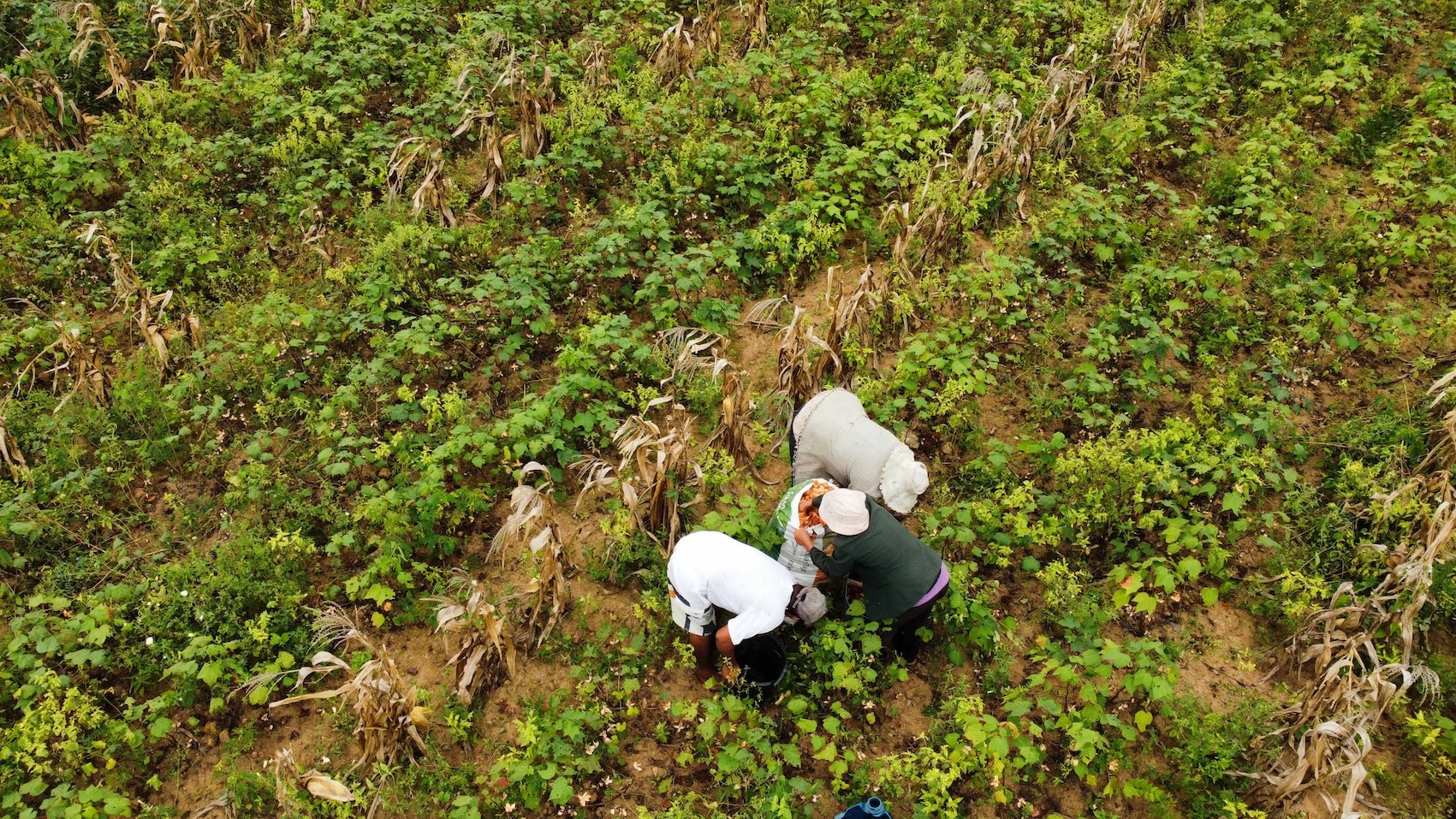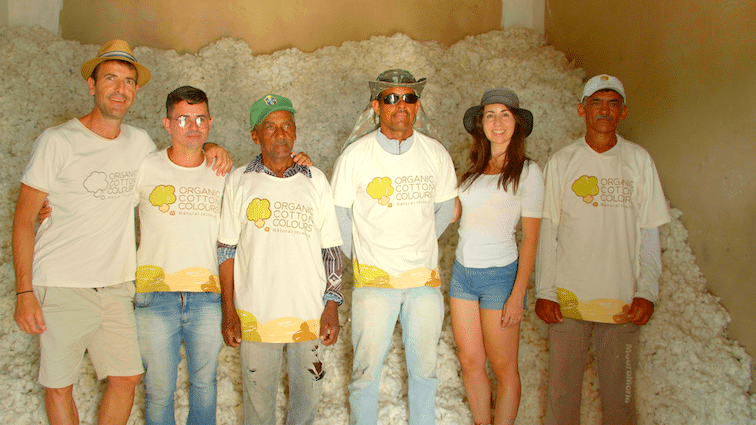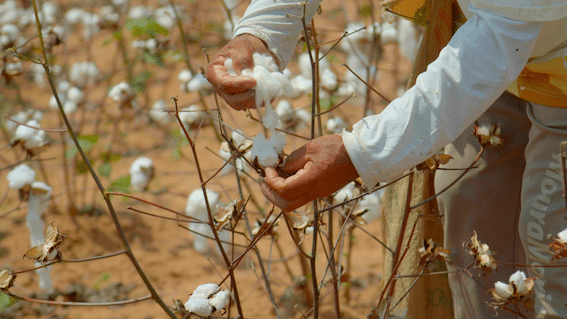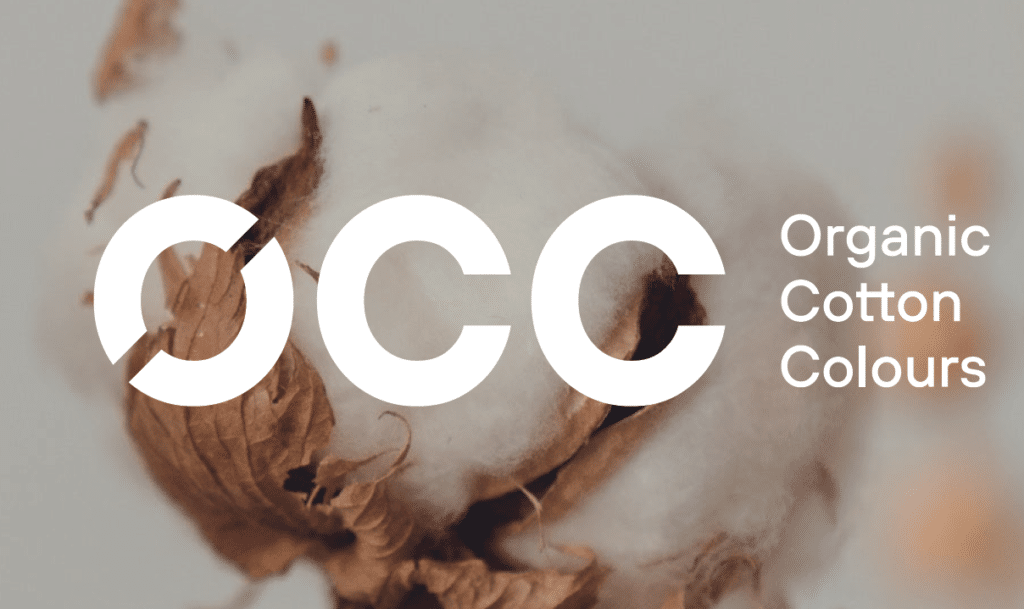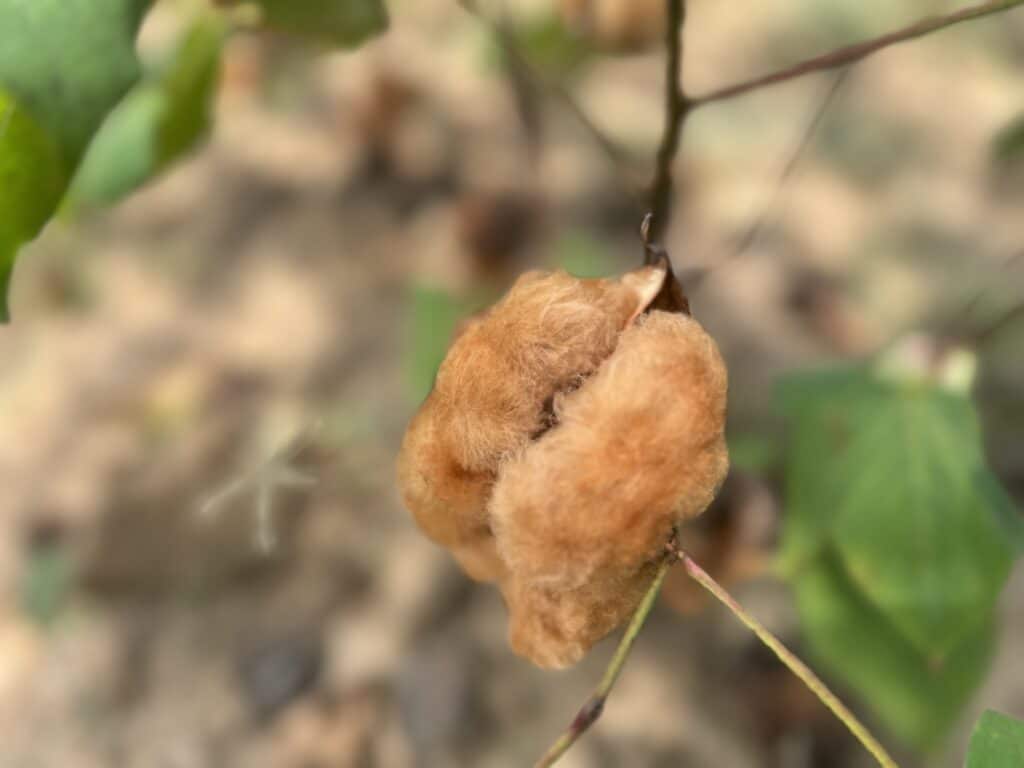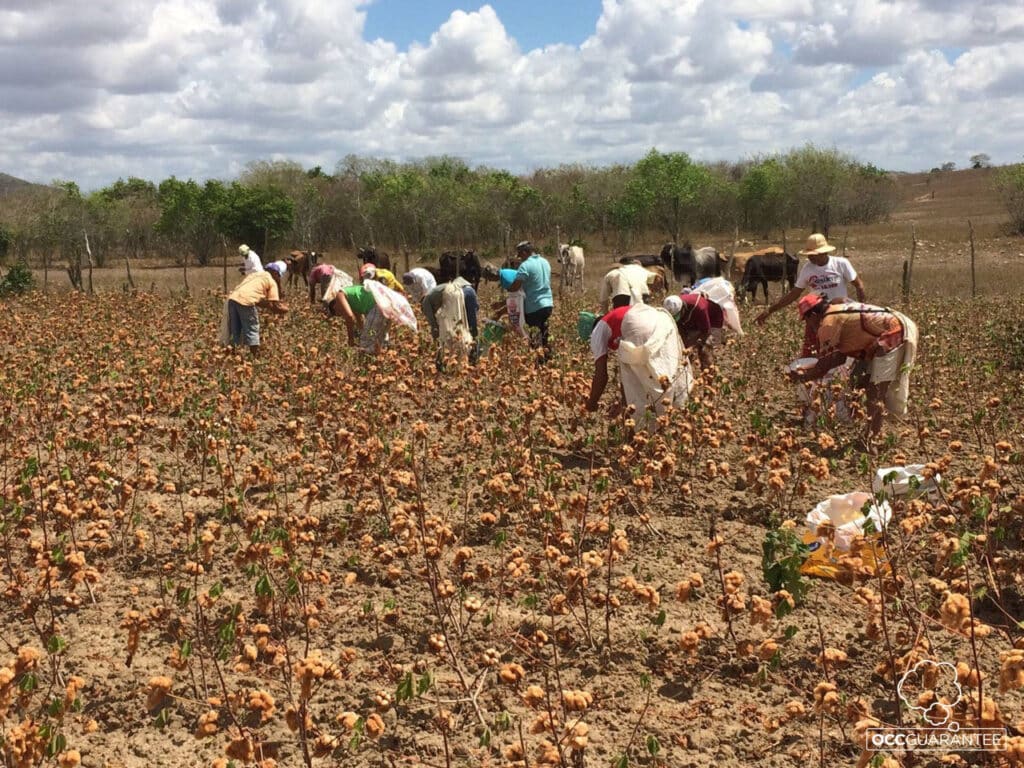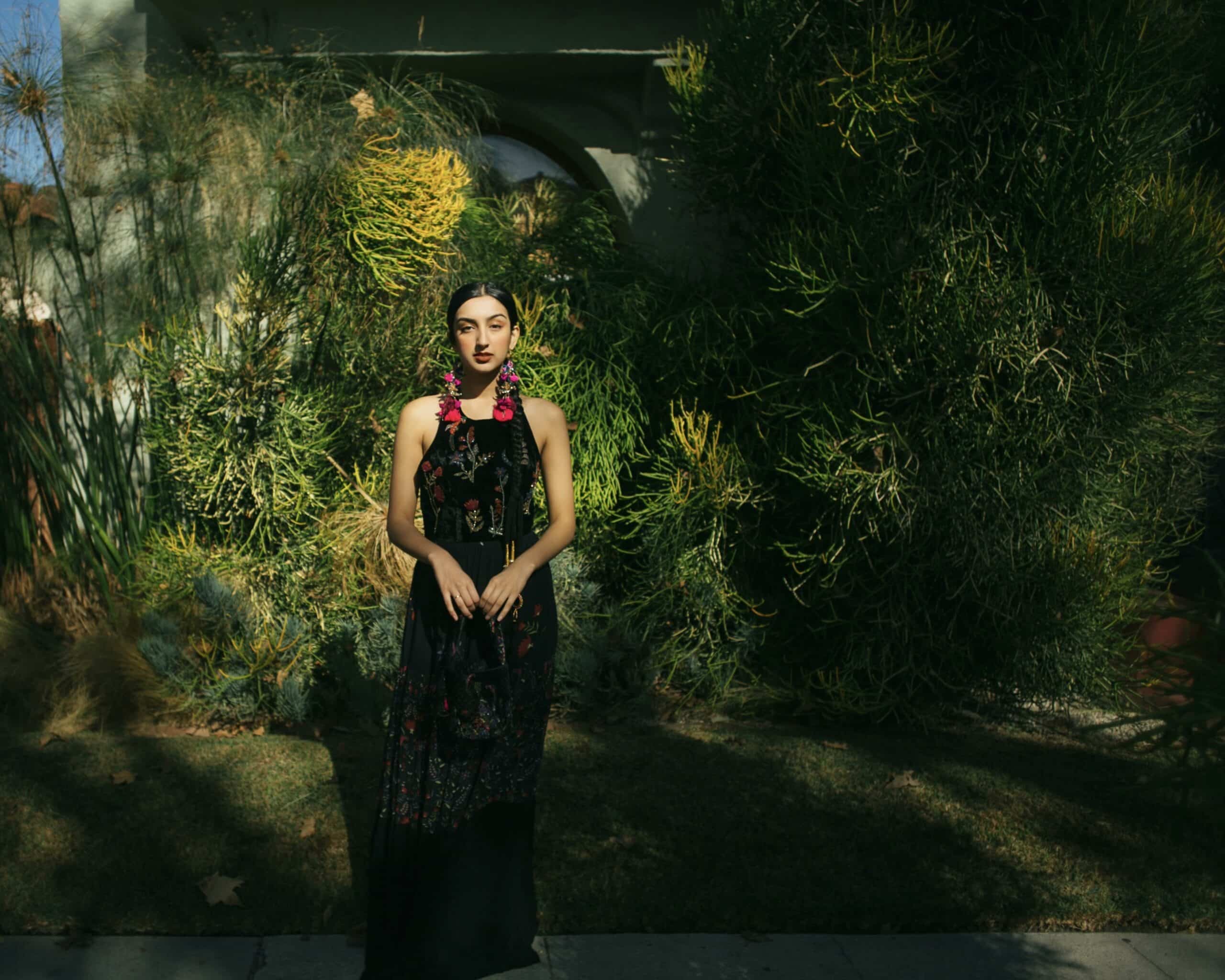Partner content
Santi Mallorquí and Santi Ribera are CEO and Executive Director respectively of Organic Cotton Colours (OCC), an international company dedicated to the production of organic and regenerative cotton. OCC was founded in 1992 by Angel Sanchez, a visionary of a demanding market for pure, non-toxic cotton, which we will discover in this interview.
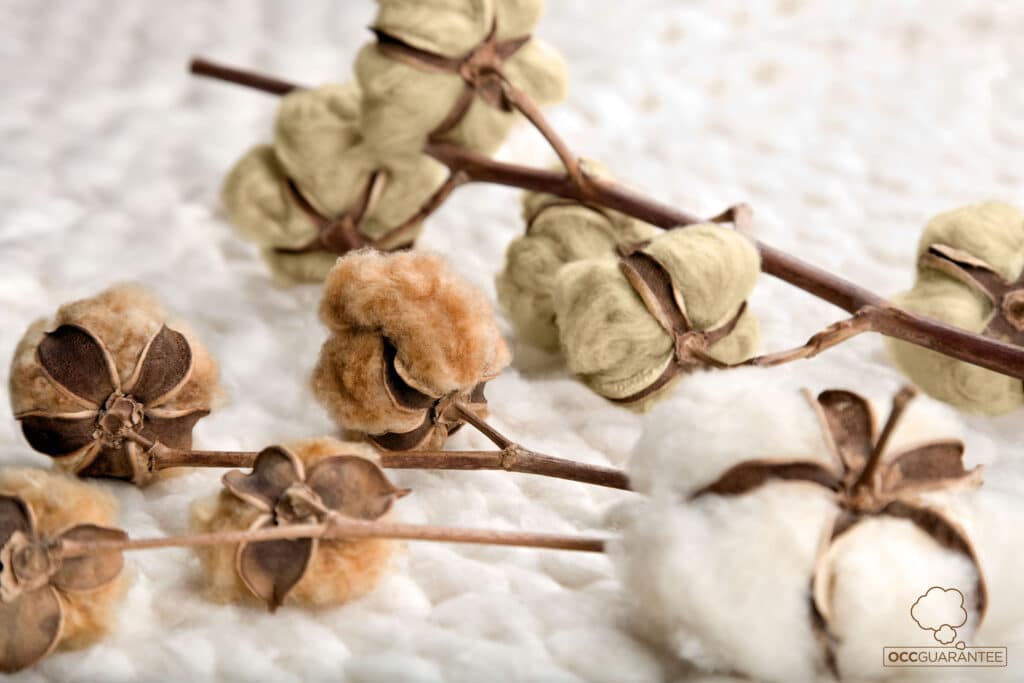
What is Organic Cotton Colours dedicated to?
Santi Mallorquí: OCC was founded in 1992 with the aim of offering garments made from 100 per cent organic cotton, without dyes, printing or humidestrong finishes, especially for people with skin problems. The company was founded to find textile solutions to the lack of purity in conventional cotton products. I took over the management of the company in 2012, moving from a B2C clothing brand to a B2B model of manufacturing naturally colourgrown cotton from the seed with cotton grown in our ownsocial project for organic and regenerative farming which we are developing in farming communities in north-east Brazil, to guarantee traceability and sustainability. We also have Pima Aegean cotton from an organic and regenerative project in Turkey, and have recently incorporated Egyptian Giza cotton, the best cotton in the world, also from a social, organic and regenerative project in Egypt. We are committed to working solely and exclusively with organic and regenerative cottons from fair trade and social development. This is how we believe we can help make a positive impact and do our best to change the current conventional cotton growing and processing industry, which is so damaging to people and the planet.
I remember that before, when we looked at the labels and it was a 100 per cent cotton product, we couldn’t ask for anything better in terms of purity… Twenty years ago, 100 per cent cotton was perhaps purer than it is today because of all the treatments that have been carried out.
“When you produce with a conscious vision, you end up with a final product that you feel comfortable with, as well as wanting to save the planet.”
(Santi Mallorquí)
We produce undyed fabrics in the natural colours of the cotton fibres from which we make our yarns. These range from the purest white of Egyptian cotton yarn, the Giza 92 variety, to the off-white colours of Turkish cotton and the various shades of green and pastel browns of Brazilian cotton.
We sell fabrics by the metre and, in the B2C sector, we continue to manufacture underwear, socks, T-shirts and towels for brands looking for maximum purity.
Today, for example, we are supporting an organic and regenerative cotton project in Turkey that combines the cultivation of hemp with cotton, a project that is producing very good results in terms of carbon sequestration.
What motivated you to get involved in a project that respects the planet?
Santi Mallorquí: I saw a business opportunity and joined the project because of the founder’s strong ecological convictions. Moreover, I worked for many years in my family’s business specialized in organic vegetables and I wanted to do something different but still with a positive impact on the environment. Today, the company has expanded its activities worldwide. We have visited India, Turkey, Egypt and Brazil and have established ourselves as a benchmark for organic and regenerative cotton, agricultural projects with a social development component and fair trade.
What type of products do you offer ?
Santi Mallorquí: We’re continuing with our original B2C business of basics: first-layer garments in direct contact with the skin, such as underwear, socks and T-shirts, using only organic and regenerative cotton under our own Organic Cotton Colours (OCC) brand. But we focus mainly on the B2B textile market, offering cotton yarn cones, cotton fabrics, and garment manufacturing services using our fabrics. We operate under three registered trademarks :
• OCCGuarantee® expresses our way of working, guaranteeing the chain of custody for cotton processing, growing and harvesting (always with organic and regenerative agricultural projects with a fair trade and social component) to manufacturing (yarns, fabrics and garments). It’s worth mentioning that all our suppliers use processes that respect people and the planet: they sign a code of conduct with us and have various certifications such as BCorp or GOTS.
• OCCRegenerative®, to identify organic and regenerative cottons from Brazil and Turkey.
• OCCBiodynamic, to identify organically and biodynamically grown cotton in Egypt.
Do you have quality certificates?
Santi Mallorquí: This year we have once again obtained GOTS certification, as well as BCorp and Demeter Biodynamic. We are also working to obtain other certifications such as Organics Brasil, USDA Organics America, EU Organic and we aim to be the first company in Brazil to obtain regenerative certification for textiles. Our aim is to obtain ROC (Regenerative Organic Certified) certification from the ROA (Regenerative Organic Alliance) by 2025.
Our portfolio will now include three supply countries: Brazil, Turkey and Egypt. In Egypt, forty years ago, a regenerative agriculture project was launched in the desert for oils, spices, food, pharmacological products and cotton by the environmental development company Sekem. This company practices certified biodynamic agriculture, which means that it goes further than regenerative agriculture. Biodynamics focuses on the retroaction of all the organic components in the environment and on the phases of the moon. The certification they have created is called the Love Economy. And beyond agriculture, they train workers in the cultural, artistic and musical fields, and even have universities in Cairo. It’s a global project that goes beyond the textile and cotton sector.
What is Organic Cotton Colours’ commitment to sustainable development?
Santi Ribera : Our commitment to sustainability dates back to the company’s creation in 1992, when we opted for organic cotton at a time when few players in the textile industry were doing so. Technically, the concept of ‘organic’ implies the sustainability of the planet, but does not necessarily have an impact on the environment.
Today, the aim is to go beyond organic and sustainability and position ourselves as promoters of regenerative farming practices which, as well as being sustainable, have an impact on the recovery of farmland and promote biodiversity. We are seeking to move towards organic cotton, grown using regenerative techniques, emphasising the importance of origin in projects with a social component and working with strategic partners who share our vision of positive impact.
What is naturally colourgrown cotton from the seed?
Santi Mallorquí : Natural seed cottons are ancient varieties of cotton that naturally produce fibres containing pigments in shades of cream, reddish brown and green. These seeds, improved in collaboration with experts such as Sally Fox in the United States, are used to produce cottons with unique colours. Naturally colourgrown cotton from the seed yields less than conventionally grown cotton, but OCC is committed to paying farmers more for this special cotton. We finance all the farmers’ production in advance and commit to buying it all for each season at a fair price.
Our project in Brazil is first and foremost a social development project: what we support and finance is an agricultural project in an agro-ecological consortium, i.e. communities of small farmers who own their own plot of land (rarely more than one hectare) where they combine growing the cotton we buy from them with various other food crops, mainly for their own consumption. As part of the project, not only do we supplement the livelihoods of these families by committing to buy all the cotton they produce on their land, but we also provide them with free seeds that we develop in multiplication fields financed by us, and we allocate 10 per cent of the cooperative’s sales to be reinvested in the technification and improvement of the collective’s farming practices.
In reality, when there is colour, there is less fibre length. It is therefore difficult for a country to develop and have enough coloured seeds to be able to spin. Since 1870, when the industrial revolution began, the need for cotton has increased. Chemical dyes were introduced and the cultivation of old varieties of cotton naturally coloured from the seeds was abandoned. However, small traditional farming communities in Brazil have preserved the coloured seeds. We help these communities to recover these varieties, also cultivate as they did in ancient times, in an organic and regenerative way.
Initially, the fibre has no particular colour. When the plant is born, it has reached all stages of growth and when the bud breaks and the sun shines on it, the fibre begins to dry, form and explode like popcorn… and this is when the different natural colours are formed. The great advantage of coloured cotton is that the more you wash it, the more vibrant its colour becomes! As a result, large companies need to focus on this type of cotton, and we need to pay farmers more because of the drop in production.
What is your definition of healthy fashion?
Santi Mallorquí : For us, this means not only the use of organic fibres, but also the participation in local projects, upcycling and clothing recycling. We plan to offer products made from post-consumer clothing by 2024, using regenerated or recycled cotton without toxins or wet finishes.
It’s interesting to talk about ethical or healthy fashion because there’s a lot of talk about food and cosmetics having a positive impact on health, but very little about the effect of clothes on health.
Where do you produce your collections and what do you know about the traceability of your supply and production chains?
Santi Mallorquí : Our production is centred in Portugal, known for its innovative and specialised textile industry. Some small parts are produced in Barcelona, and we’re looking into the possibility of producing in Egypt, where we’ll soon be visiting specialist manufacturing workshops. Traceability is a key element, ensuring that every part of the chain complies with the company’s ethical and sustainable standards.
How are your products distributed?
Santi Ribera : Distribution is mainly via B2B, without intermediaries. Our fabrics can be bought in our e-shop, where we have around 40 references, and we will have more in 2024. It is essentially a portfolio of knitted fabrics, although there are also woven fabrics.
On request, we can make any type of knitted or woven fabric from our cotton. We offer it in its natural colour, dyed or printed with dyes that are free from harmful chemical processes. On request, we can also make very fine, delicate fabrics using 120-gauge Egyptian cotton yarn, or even garments from knitted fabrics.
What are your projects ?
Santi Ribera : We want to continue to strengthen our B2B presence, offering a broad portfolio of yarn cones, fabrics and apparel services. But rather than a specific portfolio, we want to focus on our cotton, which comes exclusively from organic and regenerative social farming projects. With this in mind, we want the projects in Brazil, Turkey and Egypt to continue to develop. We would like to continue to be pioneers in this field and to locate and promote other similar projects.
We also want to continue to add value to our way of working, by committing ourselves to the original values of OCC’s founder, which we make visible with the OCCGuarantee® seal. In a sector where greenwashing practices unfortunately exist, our aim is to offer our customers peace of mind that everything we do has a guarantee of traceability, and a guarantee of positive impact on the end consumer and the planet.
Photos : Organic Cotton Colours

